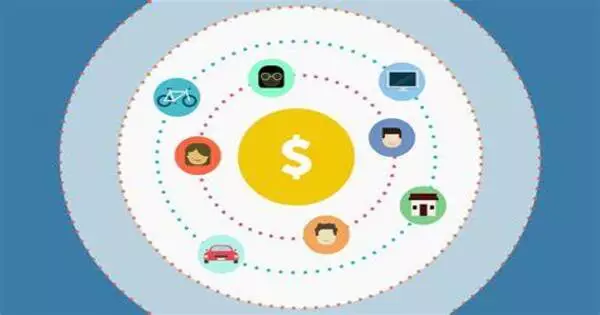The sharing economy is a socioeconomic system in which consumers participate in the creation, manufacture, distribution, trade, and consumption of goods and services. The collaborative economy, also known as the peer-to-peer economy, is a socioeconomic system in which individuals or organizations share resources, goods, services, or expertise directly with one another, often through digital platforms or technology.
Because of technological advancements and changes in consumer behavior, this concept has gained significant traction in recent years. These systems come in a variety of shapes and sizes, and they frequently make use of information technology and the Internet, particularly digital platforms, to facilitate the distribution, sharing, and reuse of excess capacity in goods and services.
It can be facilitated by nonprofit organizations, which are typically based on the concept of book-lending libraries, in which goods and services are provided for free (or occasionally for a small subscription), or by commercial entities, in which a company provides a service to customers for profit. It is dependent on the users’ willingness to share and their ability to overcome stranger danger.
Here are some key aspects of the sharing economy:
- Peer-to-Peer Transactions: Individuals or entities engage in direct transactions with one another in the sharing economy, avoiding traditional intermediaries such as companies or institutions. Individuals can use this to share resources with others, such as their homes, vehicles, or skills.
- Digital Platforms: Many sharing economy transactions are facilitated by online platforms and mobile apps. These platforms provide a marketplace where users can list their resources or services, find what they need, and arrange transactions. Examples include Airbnb for lodging, Uber and Lyft for ridesharing, and TaskRabbit for odd jobs.
- Resource Sharing: A primary focus of the sharing economy is the sharing of underutilized resources. For example, people can rent out spare rooms or vacant homes, share their cars when they’re not in use, or even rent out equipment like power tools or cameras.
- Access Over Ownership: The sharing economy promotes the idea that access to goods and services is more important than ownership. Instead of owning a car, for instance, individuals may choose to rely on ridesharing services when they need transportation.
- Sustainability: Advocates of the sharing economy often highlight its potential environmental benefits. By maximizing the use of existing resources and reducing the need for new ones, it can lead to reduced waste and a smaller ecological footprint.
Challenges
Several challenges and criticisms have been leveled at the sharing economy. Concerns about safety and liability, regulatory issues, and the impact on traditional industries and workers are among them. Because of the disruptive nature of many sharing economy platforms, there has been discussion about fair labor practices and taxation.
The sharing economy has changed how people access goods and services, providing new ways for individuals to monetize their assets and skills, but it has also raised serious concerns about regulation, ethics, and the broader economic and societal impacts of these platforms. The sharing economy will most likely continue to be a source of interest and debate in the coming years as it evolves.
















